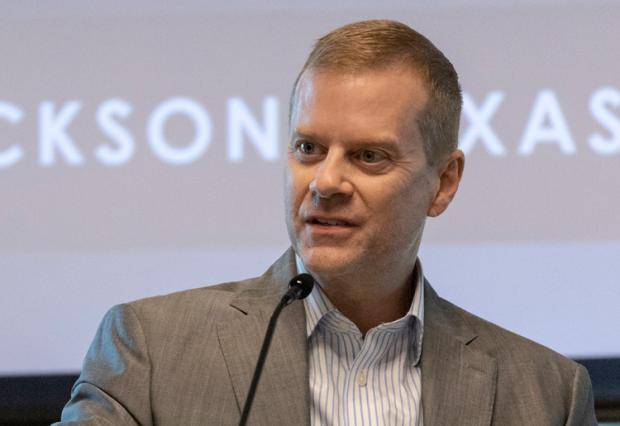The remarks I’ve prepared today relate to your personal and professional development, which are of course closely interrelated. This is not to be confused with “self-help,” a somewhat disreputable genre whose practitioners often want to sell you shortcuts. Development means just that: developing your skills, knowledge, and interests to advance toward goals which hopefully become more clear as you go through your twenties and thirties. Remember, you may well have a longer work life than your parents and grandparents, so you have more time and more choices perhaps than they did. But it is important not to waste your best years for learning, when your brain’s neurons fire at their best! Even at your age, still in college, it is not too early to view yourselves as professionals and to take your work seriously.
Here are five suggestions you can implement immediately to stand apart from your peers.
1. Sift
Access to information is virtually costless today. You job is to sift through all of the white noise and recognize what is important.
The supply of information in a digital age outpaces demand, and makes information very, very cheap. In a digital world, information is instantaneous and often free of any financial cost. This is especially true of social media, where information and opinion are readily available but knowledge and discernment are in short supply. When something is cheap and easy, we naturally tend to discount its importance.
This was not always true. In fact, previous generations had to work hard for access to information, which was largely contained in physical books which may not have been easily available or affordable. My great-grandfather, who lived with us very briefly, was born in the late 1800s. Like many of his generation, he did not finish high school and thus was only “qualified” for manual labor. So he took it upon himself to enroll in a correspondence course, the kind of thing literally advertised in the back of magazines. He probably mailed physical cash to an address listed, then waited some time for the materials. He read each course, took tests at home, and sent the tests by mail for grading. All of this took a couple of years, but at the end he had enough knowledge and some kind of credential to become an electrician for a large company. This job paid enough to afford a middle-class home, which he largely built and wired himself. The information needed to become an electrician was quite valuable to him—it was not cheap and instantly available.
But even in the 1980s and ’90s things were much different relative to today. Your average chain bookstore at the mall maybe had a few books by Ayn Rand, and perhaps Milton Friedman’s Free to Choose. You might find John Kenneth Galbraith’s The Affluent Society and something by Henry Hazlitt if you were lucky. You certainly would not have found any Menger, Mises, or Rothbard. This was also true of your local public library, or even a university library.
By contrast, today we hold almost of all the world’s history and accumulated knowledge in the smartphone sitting here. This is both a blessing and potentially a curse. Sifting, not access, is the challenge. Your job is to sift through it all and not get sidetracked by the wrong information. Time is important, and everything you do has an opportunity cost. Forbearance can be as effective as action.
2. Read
The simplest thing you can do to distinguish yourself is to become a voracious reader. This is simple but not easy.
In fact, you should strive to read one book every week. This may be difficult if you are a full-time student, and of course you probably can’t read a 900-page treatise like Human Action so quickly. But if you make the habit now as a young person, when reading speed and retention are higher, you will reap enormous benefits. For longer books, set a target page count each day. When life intervenes, make up the lost day or days over the weekend.
Charlie Munger, the billionaire partner to Warren Buffett at Berkshire Hathaway, describes his friend’s day as 80 percent reading—often five hundred pages. Before he invests his client’s money in a company, Buffett puts the odds in his favor by reading everything he possibly can about the company itself and the broader industry. He is not always right, but he is always informed. We might imagine him flying around on private jets, wheeling and dealing, when in fact he is more likely sitting at his desk, reading everything from the great books to technical analysis.
Mr. Buffett’s reading habit provides a powerful lesson for all of us. But most Americans read almost nothing. A friend who teaches at a large public university thinks less than half of his incoming freshmen have ever read a single book in full! So while our great-grandparents saw access to books (and education) as a luxury, most people today fail to take advantage of our modern tools. This is an opportunity for you to stand out.
One caveat with respect to books you read: as Charles Haywood counsels, give strong priority to books written more than one hundred years ago, and be careful with books written in the past fifty years. Older books have passed the market test; we still read Socrates and Shakespeare for a reason. If book or author still resonates after a century, your time is probably well spent. And almost all new books, regardless of genre, have an earlier and better analogue. This may not apply to recent developments in science and technology, but when reading philosophy, history, humanities, and social sciences, you should go to original sources at this point in your education.
3. Learn Continuously
Learning must be continuous over your lifetime. Formal education is just the beginning.
Unfortunately, you cannot rely on parents or high school and college curricula to teach you the basics my aforementioned great-grandfather had learned by his teen years. By basics I mean a core liberal arts education, with sufficient history, philosophy, epistemology, classics, rhetoric, languages, arts, and literature to qualify you as an educated person. You must learn most of this on your own, throughout your lifetime. This is a daunting commitment, but a worthwhile one. And it will pay off career-wise, especially in an era where the most valuable financial asset you can own might be your ability to earn (inflated) income with your knowledge.
Entrepreneur and business owner Robert Luddy teaches his employees about the Japanese concept of kaizen, or continuous improvement. The fundamental principles of kaizen relate primarily to business, but the broader concept can be applied to your long-term goals for life. Even tiny advances in your lifetime learning can accumulate dramatically over time, especially if you create the learning habit now. Remember, nobody is coming to save you or show you the way. When it comes to education, you are largely on your own.
4. Avoid Arguments
You should be too busy developing your knowledge and skills to argue with people. This is especially true when said “people” are online strangers or exhibiting bad faith.
The famous Dale Carnegie (please don’t call him a self-help writer!), best known for How to Win Friends and Influence People, insisted that nobody wins an argument. In fact, the “winner” has wasted time and burned social capital, while the opposing party is either defiant or quietly hurt despite outward bravado. In an era of information overload, when opposing views and arguments are easy to research, most people perversely dig their heels in even more. Trump campaign advisor Steve Bannon calls this “postpersuasion America,” a symptom of too many shrill attacks and too little hearts-and-minds persuasion. Arguments have become as cheap as information. You may enjoy them in the same way you enjoy junk food or a mindless movie, but don’t make a habit of wasting your time on those who are beyond persuasion.
You are too busy for this, or should be. Remember this admonition from the seventeenth-century satirical poem Hudibras:
He that complies against his Will,
Is of his own Opinion still;
Which he may adhere to, yet disown,
For Reasons to himself best known.
5. Promote People, Not Just Ideas
Finally, as you develop and improve, please remember that relationships will determine your success and happiness more than ideas.
We like to think ideas run the world, or that an absence of ideas (“ad hoc–ism”) ruins it. But leaving aside the question of whether ideology itself can become a straitjacket, ideas are meaningless without flesh-and-blood people to animate them. We don’t live in a Robinson Crusoe society. Examine the life of any successful older person, and you will discover a deep network of relationships and connections, whether business or personal. And of course this is especially true in academia. Most people are not born wealthy and connected, and worry that everything hinges on “who you know.” But you can build networks and apply your knowledge and skills to the real world of corporeal humans by understanding their (mostly) cooperative nature. Remember, this is good praxeology: Mises considered the alternative title Social Cooperation for his opus Human Action.
Consider the sociology of the Austrian school of economics, a relatively small fishbowl but fraught with intrigue, conflicts, and turning points. What if Böhm-Bawerk had not actively set out to build an intellectual apparatus from Menger’s early work? What if World War II had never happened and Mises had stayed in Vienna? What if the South Royalton conference in 1974 had not resuscitated the movement? What if Henry Hazlitt and Leonard Reed had not provided support for Mises in America? The lesson here is that interpersonal relationships and events between great thinkers often have as much impact as their work itself.
Make friends and be a friend along the way. Loyalty and gratitude are very important, and often overlooked in our grasping society. People like to follow people, not abstractions. So do your best to be a good and serious person, one who can advance both people and ideas.
Your greatest asset is time, which as young people seems to stretch out before you. But it goes quick. I encourage all of you to consider these five keys to make the most of it.































